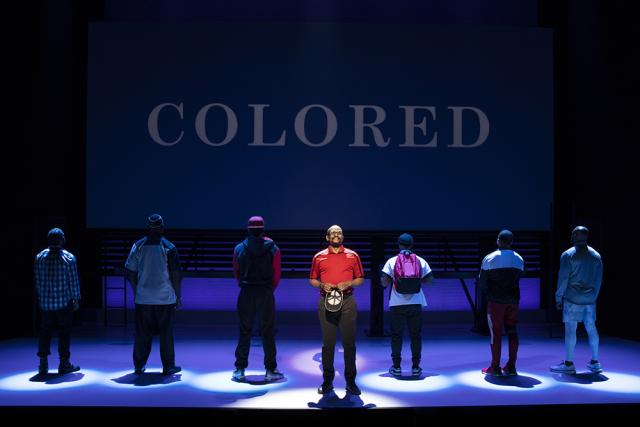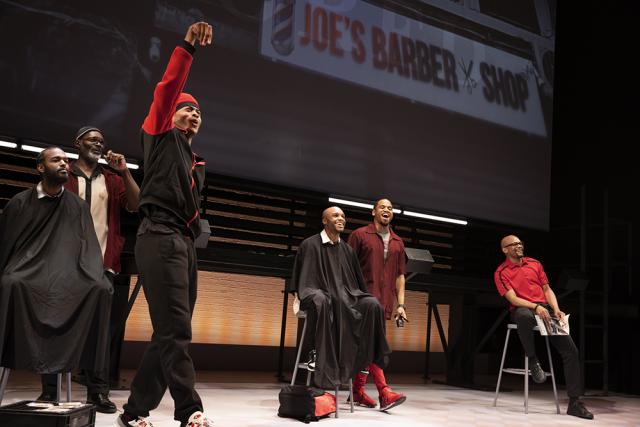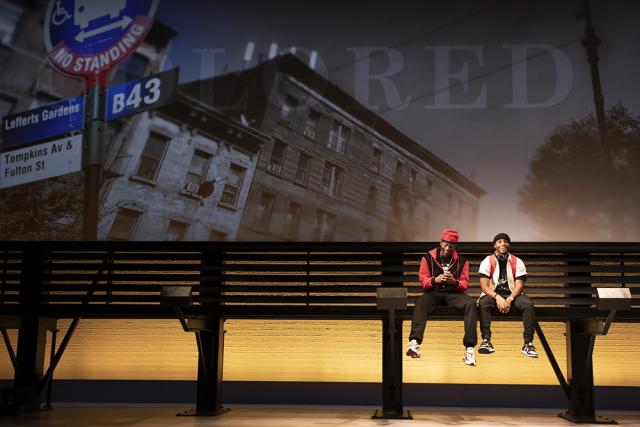


While Broadway theaters were shuttered and demonstrations erupted across the country protesting the killing of George Floyd, an African-American, by a white police officer, the industry underwent a reckoning to be more inclusive and diverse. As stages are slowly reopening, the number of productions written by African-Americans like Keenan Scott II’s Thoughts of a Colored Man and Douglas Lyons’s Chicken and Biscuits has increased above the usual token two or three per season.
While sitting in the masked audience of Thoughts, I couldn’t help reflecting that not too long ago, non-musical Broadway was dominated by white British authors such as Tom Stoppard and David Hare. A straight play by an American, white or black, male or female, was a rare thing. August Wilson was the exception, not the rule. Scott’s play is not only unconventional for the Main Stem because it addresses issues of concern for black audiences, but its form is also a rarity. This dynamic, intense piece is sort of a male version of Ntozake Shange’s for colored girls who have considered suicide/when the rainbow is enuf, one of the few non-musicals by a black author to achieve a long Broadway commercial run and announced for a revival next season. Shange’s choreopoem followed seven female characters, named only by the color of their costumes as they expressed the joys and challenges of being women and black in America in dance and poetic terms. Here we focus on seven African-American men identified only by the emotions they primarily express throughout a single day in a changing Brooklyn neighborhood. There is more plot and structure than in Shange’s free-form style, but Scott is equally poetic, imaginative and searing. From a wide-ranging barbershop confab to a high-school basketball court to waiting in line for the latest sneakers, Scott delivers a passionate panorama of the brutal and precarious state of the black male condition.
Steve H. Broadax III’s fluid direction balances humor, pathos and rage. The ensemble makes each man an individual with multiple dimensions. Particularly impressive are Forrest McClendon’s Depression, Bryan Terrell Clark’s Happiness, and Esau Pritchett’s Wisdom. McClendon skillfully suppresses Depression’s disappointment at having to work at a Whole Foods while holding a master’s degree in Engineering. His quips drip with sarcasm and his yearning for a better life is palpable. Clark finds comic gold in the elaborate charades Happiness, a gay businessman, must go through to find acceptance from straight black men. His expressions and asides to the audience when confronted with homophobia bring the house down.
Pritchett exudes dignity and experience as a Nigerian emigre, seeking to pass on his sage knowledge to a younger generation. Da’Vinchi displays depth as Lust who initially seems like a thoughtless street kid but hides a gaping wound. Dyllon Burnside beautifully handles Scott’s most romantic poetry as Love. Luke James sings with passion as Passion and Tristan Mack Wilds simmers with frustration as Anger, an athletic coach burning over a system which exploits his students.
Robert Brill’s urban set, Ryan O’Gara’s mood-setting, luminous lighting and Sven Ortel’s projections provide the perfect environment for this thought-provoking Thoughts.
